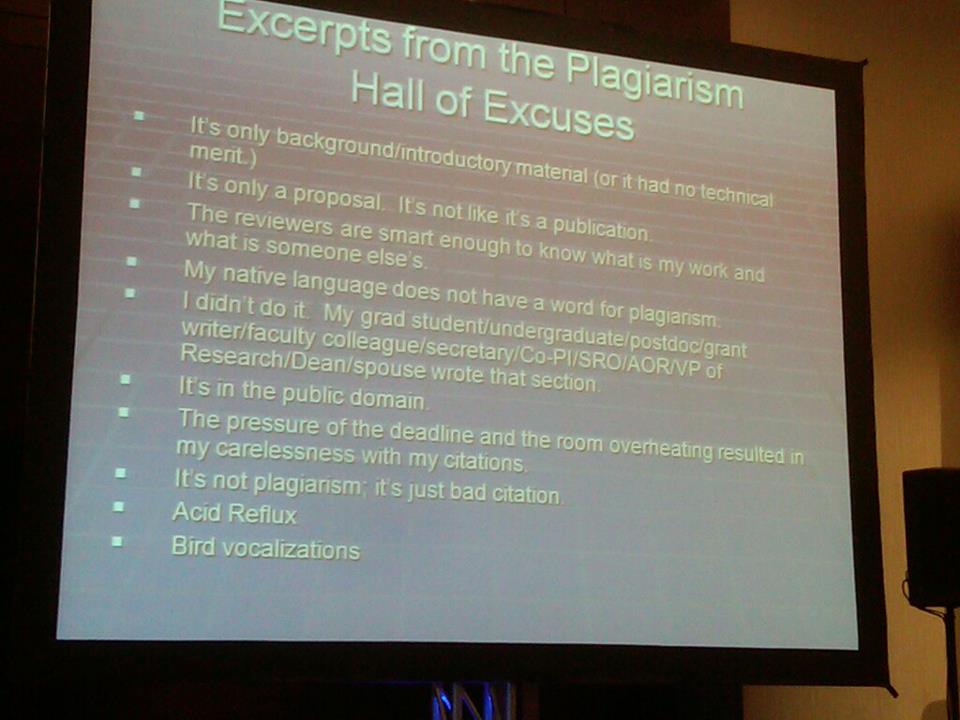
A trio of speech researchers in India has lost a 2020 paper for a trifecta of malpractice: plagiarism, self-plagiarism (of a previously retracted article, no less!) and falsification of data.
The article, “Speech enhancement method using deep learning approach for hearing-impaired listeners,” appeared in January in Health Informatics Journal, a Sage title.
According to the abstract:
A deep learning-based speech enhancement method is proposed to aid hearing-impaired listeners by improving speech intelligibility. The algorithm decomposes the noisy speech signal into frames (as features). … Experimental results demonstrate that deep convolutional neural network approach appeared more promising than conventional approaches.
But as the retraction notice explains, that wasn’t true:
This article contains substantial unreferenced overlap with material from other sources (1-4). An earlier version of this article (4) was previously retracted from Medical & Biological Engineering & Computing and the authors had not disclosed this to the Editor on submission.
In addition, this article contains manipulated data that reduces the validity of the reported findings.
The unattributed excerpts in the article were taken from the following sources:Goehring Tobias, Bolner Federico, Monaghan Jessica JM, van Dijk Bas, Zarowski Andrzej, Bleeck Stefan (2017) Speech enhancement based on neural networks improves speech intelligibility in noise for cochlear implant users. Hearing Research 344: 183-194.
2. Acharya U. Rajendra, Oh Shu Lih, Hagiwara Yuki, Tan, Jen Hong, Adam Muhammad, Gertych Arkadiusz and Tan, Ru San (2017) A Deep Convolutional Neural Network Model to Classify Heartbeats. Computers in Biology and Medicine. 89(1): 389-396.
3. Monaghan Jessica JM, Goehring Tobias and Xin Yang (2017) Auditory inspired machine learning techniques can improve speech intelligibility and quality for hearing-impaired listeners. The Journal of the Acoustical Society of America 141(3). DOI: 10.1177/1477370819839620.
4. Khaleelur Rahiman PF, Jayanthi VS and Jayanthi AN (2019) Deep convolutional neural network-based speech enhancement to improve speech intelligibility and quality for hearing-impaired listeners. Medical & Biological Engineering & Computing 57 (4):757-759.
We emailed the first author, PF Khaleelur Rahiman, of the Hindusthan College of Engineering and Technology, for comment but did not hear back. The editor of the journal did not reply to a request for comment.
Here’s the notice for the previously retracted article, which was pulled in 2018 (and, FWIW, is in our database for anyone to find):
The Editor-in-Chief has retracted this article as it shows significant overlap with publications [1, 2, 3]. None of the authors agree to the retraction. The online version of this article contains the full text of the retracted article as electronic supplementary material.
1. C Tobias Goehring, Federico Bolner, Jessica J.M. Monaghan, Bas van Dijk, Andrzej Zarowski, Stefan Bleeck: “Speech enhancement based on neural networks improves speech intelligibility in noise for cochlear implant users”, Hearing Research 344, pp. 183-194 (2017), https://doi.org/10.1016/j.heares.2016.11.012.
2. Acharya, U. Rajendra and Oh, Shu Lih and Hagiwara, Yuki and Tan, Jen Hong and Adam, Muhammad and Gertych, Arkadiusz and Tan, Ru San: “A Deep Convolutional Neural Network Model to Classify Heartbeats”, Comput. Biol. Med. 89 C, pp. 389-396 (2017), https://doi.org/10.1016/j.compbiomed.2017.08.022.
3. Jessica J. M. Monaghan, Tobias Goehring, and Xin Yang: “Auditory inspired machine learning techniques can improve speech intelligibility and quality for hearing-impaired listeners”, The Journal of the Acoustical Society of America 141, 1985 (2017); https://doi.org/10.1121/1.4977197.
Like Retraction Watch? You can make a tax-deductible contribution to support our work, follow us on Twitter, like us on Facebook, add us to your RSS reader, or subscribe to our daily digest. If you find a retraction that’s not in our database, you can let us know here. For comments or feedback, email us at [email protected].
COPE says you should never blacklist authors, but if I were a journal editor these particular authors would seem to merit it.
COPE seems to advise against blacklists because of legal risk and the potential harm done to other authors (https://publicationethics.org/case/case-salami-slicing). But I don’t see the risk – what can authors sue for? There’s nothing published so there’s no defamation or libel. And credit reporting agencies and landlords in many jurisdictions effectively blacklist people with no consequences.
I get the potential harm to innocent co-authors who miss out on adding a paper to their CV. But if they’re working with a bad actor the chances are the paper has issues that you’re better off avoiding.
Great you featured this one! A prime example of how not to plagiarise.
As long as they keep citing the papers that they plagiarise in the first place, then it only does harm as long as the journal takes to retract the paper (was about 6 months in both cases). Both papers popped up in my google scholar as a new paper recommendations, and I really liked their style (potentially because it was my own writing)…
Tobias (one of the plagiarised authors)